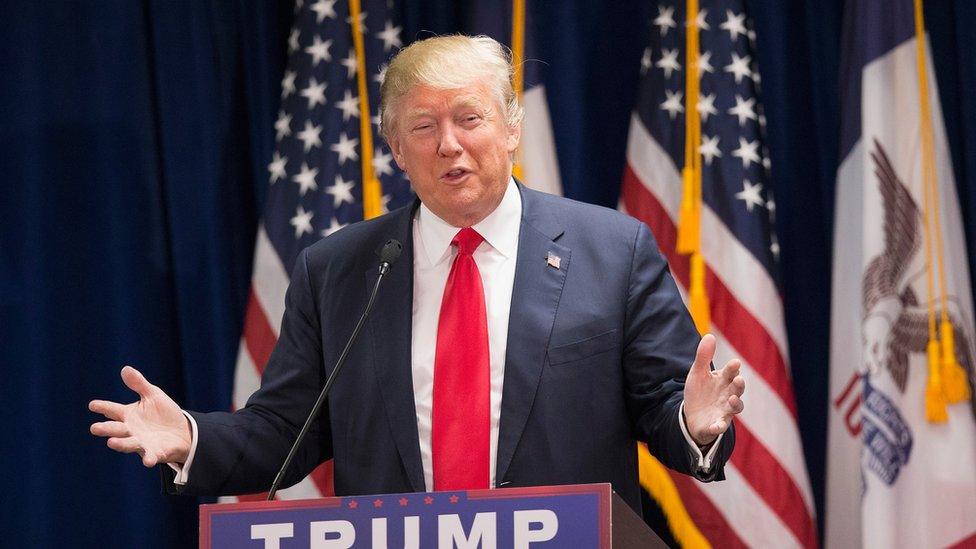Trump and Africa: Five views
- Published
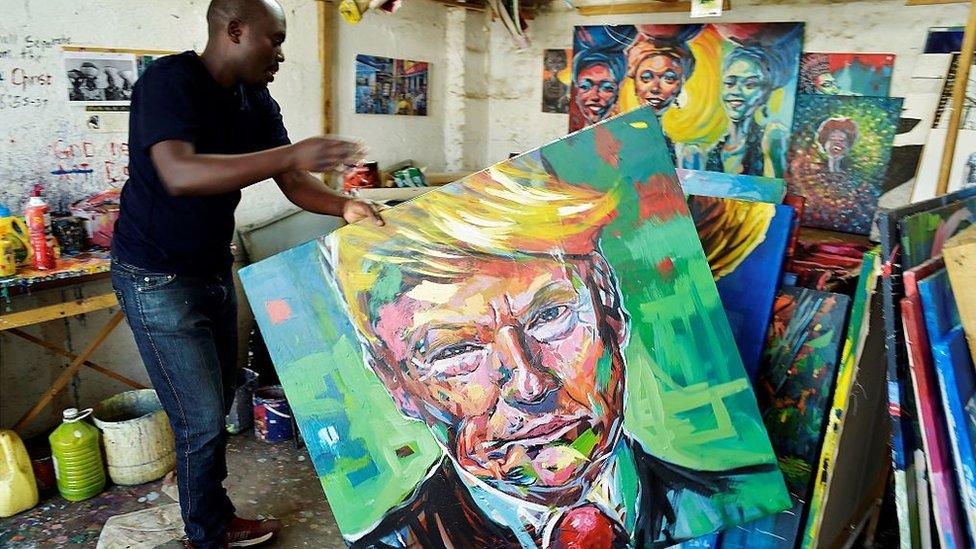
This is how Kenyan artist Evans Yegon depicted Mr Trump
Donald Trump won the US presidency after suggesting he would make big changes in the way his country relates to the rest of the world. So what does his move to the White House mean for different African countries?
South Africa - by Pumza Fihlani
South Africa has gone to great lengths to position itself not as a country in need of aid but as a formidable trade partner. But tough negotiations with the US on the African Growth and Opportunity Act (AGOA) late last year were perhaps a reminder to the developing country of its actual place at the big table. Some critics of the treaty say South Africa, like many African countries, was strong-armed into accepting less than favourable terms for the sake of having a powerful ally.
The US has been accused of dumping chicken, which is said to be crippling South Africa's poultry industry. Trade union federation Cosatu claims the deal could lead to further job losses here - especially in the poultry industry. Mr Trump has a reputation of being a shrewd businessman, and while it's not clear what his policy on South Africa will be, some here are worried that the somewhat cosy relationship South Africa has enjoyed for years may be shaken up. They suggest the businessman's administration might require South Africa to show why it deserves to be on Mr Trump's team. Anyone else reminded of his reality show The Apprentice?

Nigeria - by Naziru Mikailu
Since the election of President Muhammadu Buhari last year, Nigeria has improved ties with the US. Relations had been severely damaged by accusations against the Nigerian military of human rights abuses, especially in the fight against Boko Haram Islamist militants. The Nigerian military received training and equipment from the Obama administration and would surely want Mr Trump to maintain these improved ties.
Nigeria would also want better trade relations with the world's largest economy. Some of the biggest US companies are among the major investors in Nigeria's energy sector but the exploitation of shale gas in the US has led to a reduction in the amount of oil the US buys from the West African nation.
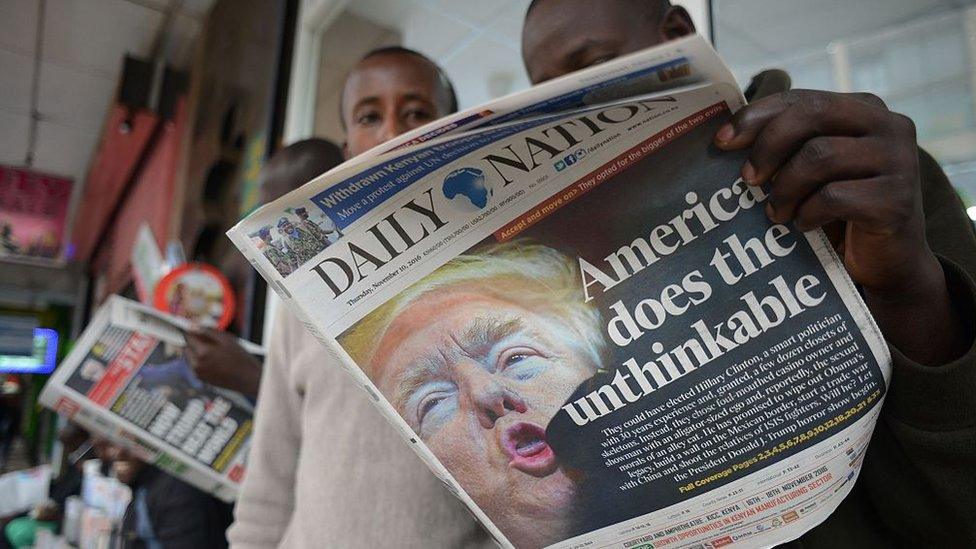
This was how a Kenyan newspaper reported Mr Trump's victory
The two countries may yet find themselves at loggerheads if Mr Trump decided to recognise the Biafra separatists. The activists, who have been campaigning for a breakaway state in the east of the country, endorsed the Republican candidate during the presidential race in the hope he would recognise their independence movement. They say that he supported Brexit - the UK's move to leave the European Union - and so would also back "Biafrexit", although he has given no such indication publicly.
There are also said to be more than one million Nigerians living in the US, and some here are worried that Mr Trump's immigration policies may lead to thousands being deported.

Uganda - by Catherine Byaruhanga
The US government provides more than $700m (£570m) in assistance to Uganda every year. The majority of this aid goes to health programmes, particularly free HIV/Aids medication for those who need it. An unspecified amount is also given in military support. No details are given but as Uganda has increased its missions abroad, including to Somalia and the Central African Republic, Washington has been a key financial backer. It also provides training for Ugandan soldiers.
In a recent letter to the US State Department, Mr Trump's transition team asked about these activities. The worry in Kampala is that the new administration will stop or reduce this support. On the other hand, some in the opposition have argued that foreign financial backing has given the government an unfair advantage. In the health sector, reduced US support could leave many in the cold.

Kenya and Somalia - by David Wafula
Up to one third of the 90,000 Kenyans in the US are illegal immigrants, according to the Pew Research Centre. This means that more than 30,000 people could be sent back to Kenya if President-elect Donald Trump makes good his campaign pledge to deport illegal immigrants. That would badly hit the remittances they send home, estimated at $60m from the US and Canada in 2015.
It could also mean the end of the road for thousands of young people from poor backgrounds hoping to study in the US under scholarships, which Mr Trump has sworn to eliminate as soon as he takes office.
Members of Mr Trump's transition team assessing US relations with Kenya and Africa have raised concerns over comments about future ties. The transition team has questioned why the US has been fighting al-Shabab for a decade yet has not won. And it has questioned whether the money that Washington donates to various causes in Africa is being spent wisely.

Zimbabwe - by Shingai Nyoka
President Robert Mugabe's government has said it hopes the change in the status quo might help it restore ties with Washington. Mr Mugabe, some of his officials and some government-owned companies have been under travel and economic sanctions since George W Bush's presidency over alleged human rights abuses. Mr Mugabe believes the sanctions are illegal.
But Mr Trump has not made any statement about Zimbabwe or Mr Mugabe and there is no indication his stance on Zimbabwe will differ from his predecessor's.

- Published18 January 2017
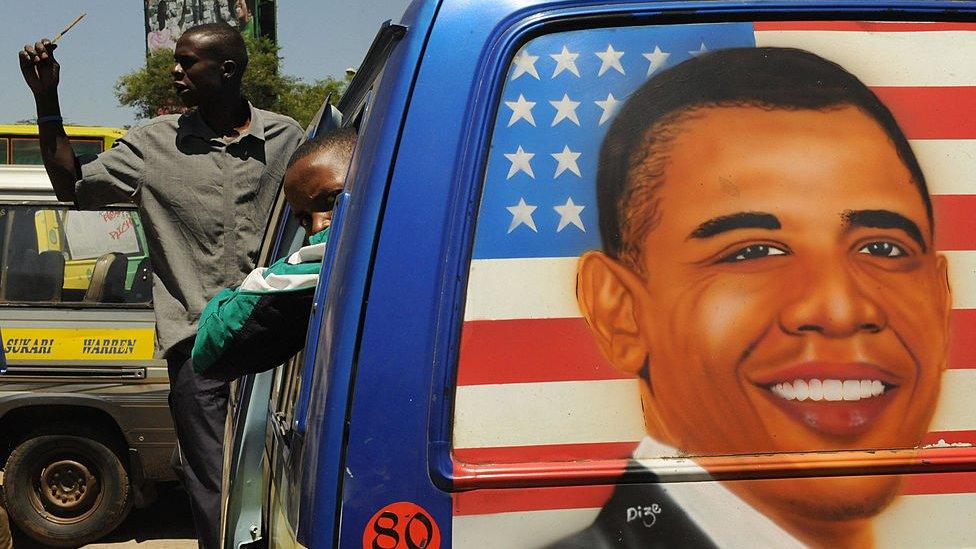
- Published10 November 2016
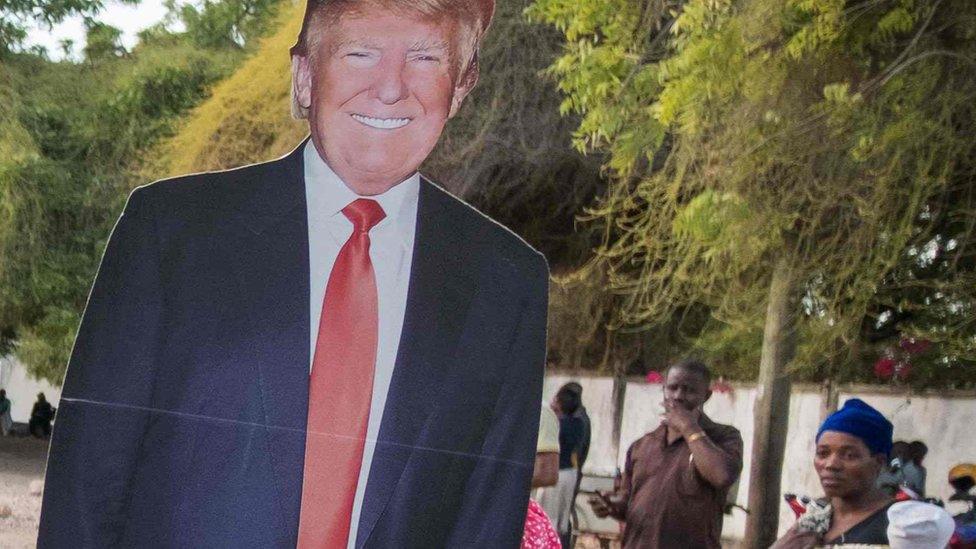
- Published11 November 2016
